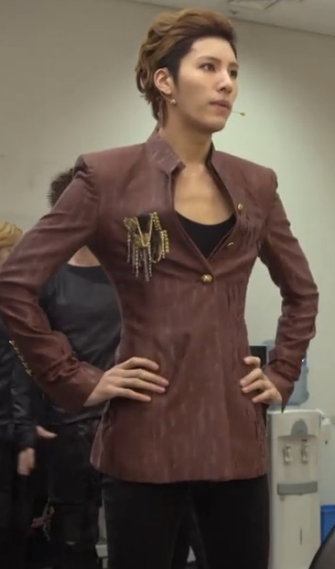In television dramas (yeah, I'm gonna be harping on them for a while: get used to it), there's this thing often mentioned during a relationship. They call it "playing push and pull". Sometimes this refers to what most English-speaking folk refer to as "playing hard to get", but sometimes what "playing push and pull" really means is emotionally dragging someone back and forth.
Aren't they the same thing? No. One is a manipulation whilst still anticipating a concrete, specific result (Person A and Person B end up either in a relationship, or they don't). The other has a sort of third party element, because it isn't what one Person A does to Person B regarding themselves; it's what Person A does to Person B in order to shape or manipulate Person B's view or perspective of Situation C (which could be a couple pairing, traumatic circumstances, what have you).
Another possibly new-to-you term coined by drama addicts: Second Lead Syndrome. In short, SLS is the affliction of the observer rooting for the third party in a love triangle--the one who obviously isn't going to win. Most dramas, at least 95% of them, leave the Second Lead cold and alone, or if they're generous, with some glimmer of a positive occurrence via some other avenue in the last five minutes of the last episode.
The most brilliant dramas, though, are the ones where both romantic prospects are written in such a way as to drive the reader running back and forth between camps. How? I swear it's gotta involve some sort of potion or magic spell, or soul-selling sorcery. Do the writers make both options so prime as to be a golden choice either way? Are they they drama equivalent of a Mary Sue? Nope. Those don't work. As with novels, it's boring.
Not that I'm an expert, but the trick is so far as I can tell lies in giving something admirable and something vulnerable to both . . . and then taking turns in revealing those things so that the reader/watcher/voyeur/whatever is never quite convinced which is the "best" relationship. A Thing to watch out for, though. Waffling. If your Object d'affection goes back and forth between the other two points of the triangle, he or she better do it for believable reasons. Same for the observer. You aren't necessarily going to switch teams mid-game just because the coach does. You may be switching beforehand, because you know something the coach doesn't, or you may not change your mind at all, because you have a broader view of the game. The character going back and forth just because the two prospects show her some new shiny thing time and again is . . . annoying. I once read a book wherein the girl claimed to love two boys at once, and she got all hot and bothered no matter which once was kissing her, or looking at her with goo-goo eyes. And I mean within pages, paragraphs even, of each other. I call "bull crap". You can be sincere to either, but not both, and if you think you can, you are deluding yourself, because that is a sign of needing to take some time to figure yourself out. That is a cop-out, a lame plot device, and a serious abuse of a good make-out scene. RESPECT THE MAKE-OUT SCENE. Sorry. Mini-rant.
Anyway.
Playing 'Push and Pull'. Manipulating a reader so that he or she can genuinely fall for One or the Other and Back Again multiple times before the last page of the story. The subject can become a heated one, and it's often polarizing for fans. Team Edward or Team Jacob? Team Will or Team Jem. Team Sorry I Have A Headache or Team So I Can't Bother with Other Examples. But was there ever a moment when A Team Edward member was swayed--even a second, even for just a blink or a sentence--over to Team Jacob? Sure there was. Was there a moment when a reader though, "Oh, yes. I know these two really want to be together, but wouldn't it be so much healthier/happier/sweeter/just for the other two to end up a couple, instead?" Of course.
So, how are you going to do it? How are you going to make a reader question their own preference? Second guess their own hearts? Spare a sigh for the other?
Get crackin'.
Personal Note: Youngest wants you to know that the Goblin King is famous for being a rock star.









































